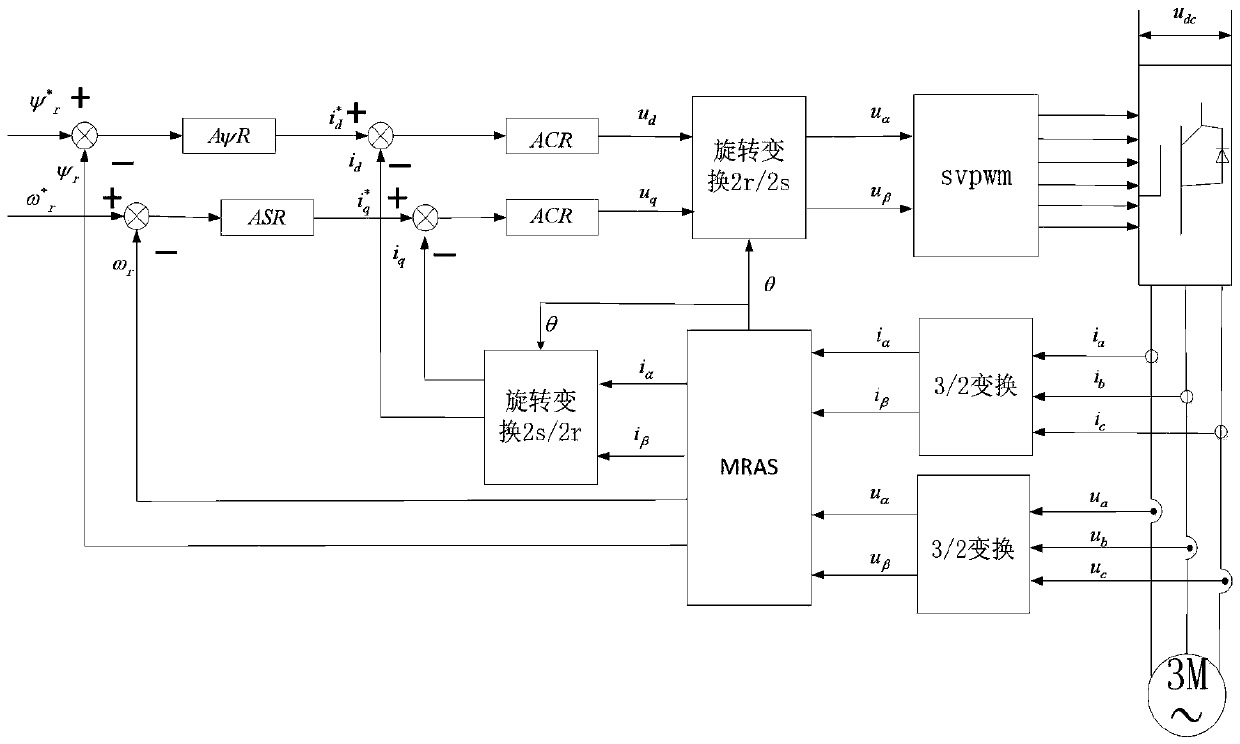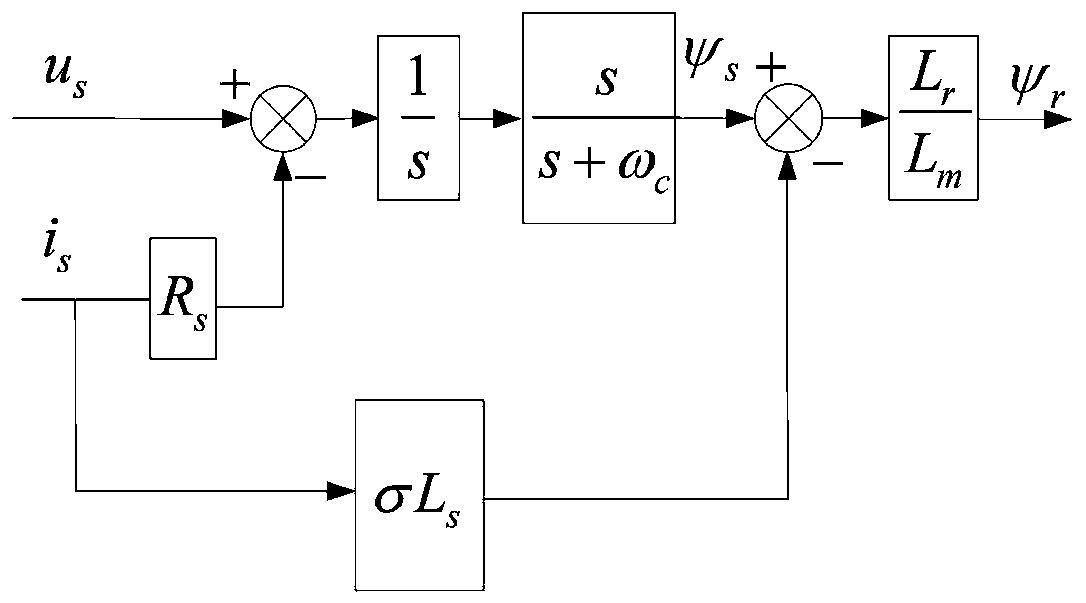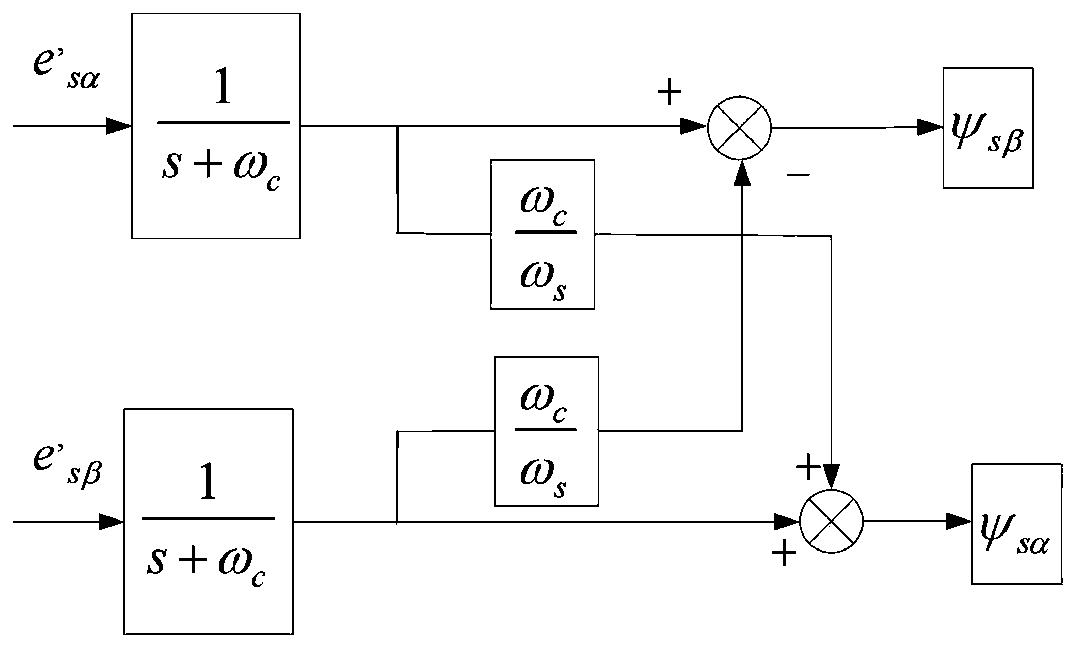Asynchronous motor control method based on MRAS
A technology for asynchronous motors and control methods, applied in motor control, motor generator control, AC motor control, etc., can solve problems such as the influence of motor dynamic characteristics, DC bias, and undetermined initial position, and reduce electromagnetic torque Fluctuation, improved stability, and guaranteed accuracy effects
- Summary
- Abstract
- Description
- Claims
- Application Information
AI Technical Summary
Problems solved by technology
Method used
Image
Examples
Embodiment
[0054] combine figure 1 , a kind of MRAS-based asynchronous motor low-speed performance improvement control method of the present invention comprises the following steps:
[0055] Step 1. Obtain the detected three-phase stator current i of the asynchronous motor a i b i c and the three-phase stator voltage u a , u b , u c , put i a i b i c , u a , u b , u c The torque current feedback value i is generated by sequentially performing Clark and Park transformations q and excitation current feedback i d ;
[0056] Step 2. Obtain the rotor angular velocity feedback ω through the improved MRAS r ;
[0057] Step 3. Set the preset speed and rotor angular velocity feedback ω r The comparative difference is input to the speed controller to adjust the output torque current the torque current and torque current feedback amount i q The output voltage u after the comparative difference is input to the first PI regulator q ;Set the preset excitation current and exci...
PUM
 Login to View More
Login to View More Abstract
Description
Claims
Application Information
 Login to View More
Login to View More - R&D
- Intellectual Property
- Life Sciences
- Materials
- Tech Scout
- Unparalleled Data Quality
- Higher Quality Content
- 60% Fewer Hallucinations
Browse by: Latest US Patents, China's latest patents, Technical Efficacy Thesaurus, Application Domain, Technology Topic, Popular Technical Reports.
© 2025 PatSnap. All rights reserved.Legal|Privacy policy|Modern Slavery Act Transparency Statement|Sitemap|About US| Contact US: help@patsnap.com



